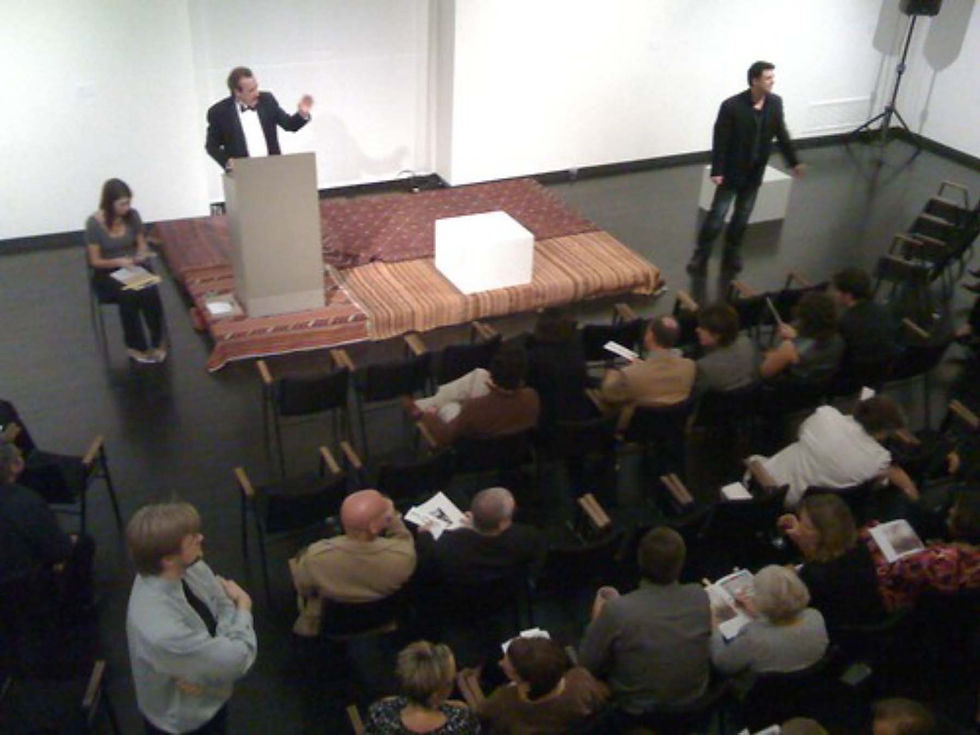A Beginner's Guide to Buying at Auction-- 8 Things to Consider
- Trader Chris Staff

- Aug 5, 2019
- 3 min read
Live auctions can be a great way to scoop up bargains or add hard-to-find items to your home or business. To the novice, however, auctions can appear confusing or intimidating at first.
Here are some good tips to get you started successfully at your local auction house:
1. Caveat emptor (or “Let the buyer beware”). Most items sold at auction are sold “as is” in estate condition, which means they have previously been owned and/or used and don’t come with a guarantee. Items may also be described incorrectly and damage or defects may not necessarily be included in online descriptions or photos. Whenever possible, inspect the items in person for signs of wear, damage, or repair. If you can’t make it to the auction house, call or e-mail in advance of the sale to inquire about the condition of the item(s).
2. Ask questions. Auction houses should be happy to educate new buyers on the auction process and the items being sold, and if they aren’t welcoming, take your business elsewhere! Bidders typically have to register in advance, which may include providing a copy of a driver’s license and/or form of payment to keep on file. You should also be aware of any buyer’s premium (a fee charged by the auction house to the buyer) and taxes after the sale, which may add another 15% to 25% to the final bid price.
3. Make a list. Seasoned bidders will often make a list of items they wish to bid on with their maximum bid amount next to an item description or lot number. This keeps them focused and within their budget.
4. Carry a measuring tape. If you’re planning on purchasing a larger item such as a piece of furniture or a rug, be sure to take the measurements of both the space that you intend to place it, as well the doorframes in your home and the cargo area of your vehicle. You’d be amazed at how many people buy things that don’t fit in their car or home!
5. Bring some packing materials. Auction houses may have some extra boxes and recycled packing material available for buyers, but they’re usually limited and may be gone by the time you get a chance to pack. Bring some newspapers and boxes to pack smaller items and have some old blankets handy if you plan to buy furniture or other large items. If you purchase a chandelier, a wardrobe box from Lowes or Home Depot can be a good way to transport it home safely.
6. Pack a snack. Auctions may have anywhere from several hundred to a thousand or more lots to sell at a time, so you may be waiting a while between lots that you want to bid on. Consider packing a snack and some caffeine if you’re going to be there for several hours or more.
7. For resale, buy wholesale. Auctions can be a great way to purchase inventory at wholesale prices. Items sold as lots or in large sets can often be sold individually for a profit, providing you buy at a good price. Do your homework beforehand to determine a reasonable cost per item before bidding. The “sold” prices on eBay are usually a good indication of the resale value of more common items.
8. Leave an absentee bid. Don’t have hours to spare sitting in a chair? Consider leaving an absentee bid, in which the auction house will bid on items for you up to a maximum amount that you set. Be sure to ask how the absentee bids are executed.
Chris DiGiovanna







Comments